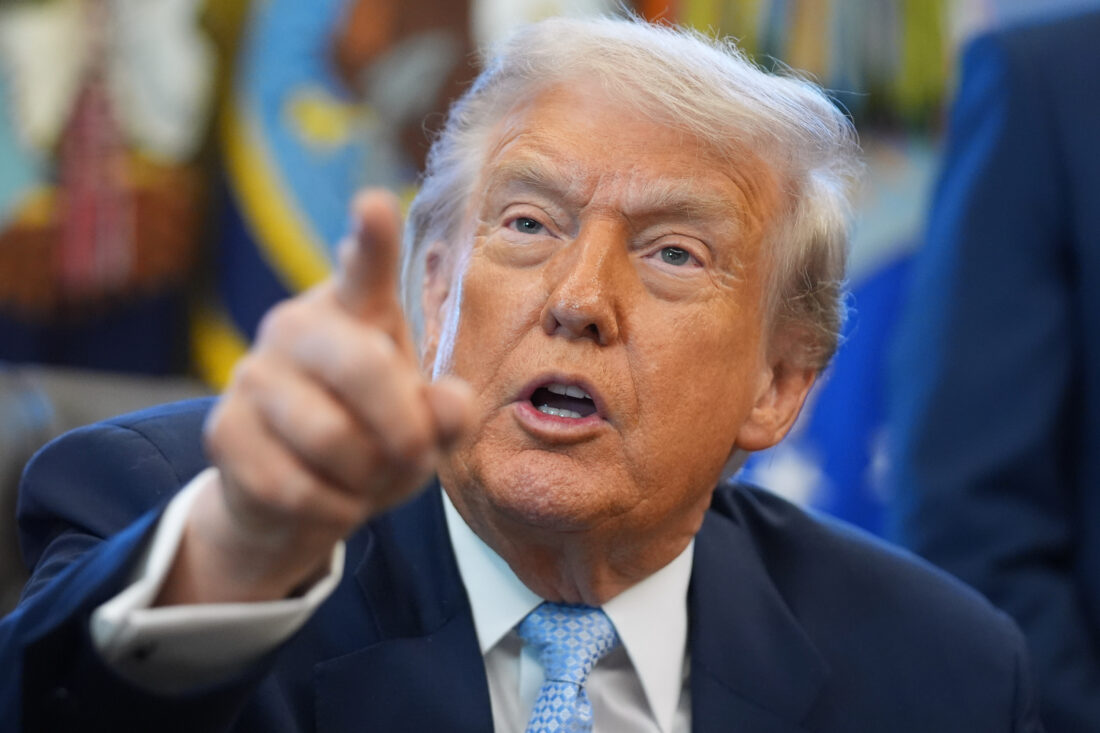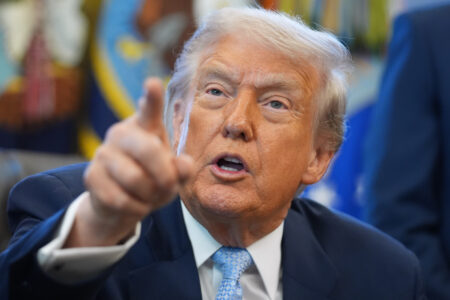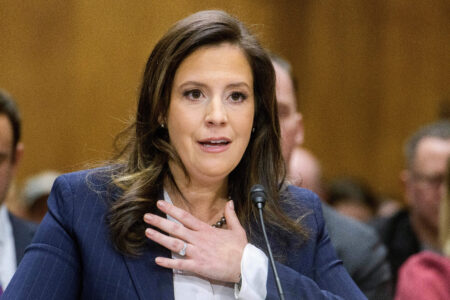Trump says he will sell F-35s to Saudi Arabia

President Donald Trump answers questions from reporters during a meeting with the White House task force on the 2026 FIFA World Cup in the Oval Office of the White House on Monday in Washington. (AP Photo/Evan Vucci)
WASHINGTON (AP) — President Donald Trump said Monday he will sell F-35 fighter jets to Saudi Arabia despite some concern within the administration that such a sale could lead to China gaining access to the U.S. technology behind the advanced weapon system.
The announcement came on the eve of Saudi Crown Prince Mohammed bin Salman’s highly anticipated Washington visit, his first to the United States in more than seven years.
“I will say that that we will be doing that,” Trump said when asked if he would sell the jets to Saudi Arabia. “We’ll be selling F-35s.”
The crown prince had been expected to arrive with a wish list that includes receiving formal assurances from Trump defining the scope of the U.S. military protection for the kingdom and an agreement to buy U.S.-made F-35 fighter jets, one of the world’s most advanced aircraft.
The Republican administration, however, has been wary about upsetting Israel’s qualitative military edge over its neighbors, especially at a time when Trump is depending on Israeli support for the success of his Gaza peace plan.
Another long-standing concern, which also derailed a potential similar sale to the United Arab Emirates, is that the F-35 technology could be stolen by or somehow transferred to China, which has close ties to both the UAE and Saudi Arabia, according to three administration officials who spoke on the condition of anonymity to discuss internal deliberations on the matter.
The Saudis and China last month held joint naval exercises hosted by the kingdom. And Beijing in 2023 helped mediate an agreement between the Saudi Arabia and Iran to reopen their embassies and exchange ambassadors amid ongoing tensions.
China surpassed the U.S. last year as Saudi Arabia’s top trade partner, but the United States has remained Riyadh’s favored nation for arms sales.
Bradley Bowman, senior director of the Center on Military and Political Power at the Foundation for Defense of Democracies, said Congress could press the administration to detail what assurances Riyadh has given the White House about its relationship with China.
He added that the White House is likely to also face questions about plans to ensure Israel maintains its qualitative military edge.
The announcement by Trump comes at a moment in which he’s trying to persuade Saudi Arabia and Israel to normalize relations.
He has talked up his push to extend his first-term Abraham Accords — the project that formalized commercial and diplomatic ties between Israel and a trio of Arab nations — as key to his plan for bringing long-term stability to the Middle East as the fragile ceasefire between Israel and Hamas in Gaza continues to hold.
“I hope that Saudi Arabia will be going into the Abraham Accords very shortly,” Trump told reporters aboard Air Force One on Friday as he made his way to Florida for the weekend.
Yet Trump’s optimism that a U.S.-brokered deal could come soon is tempered by more sober internal assessments.
The Saudis have made clear that a guaranteed path to a Palestinian state remains a condition for the kingdom signing onto the accords — something Israel vehemently opposes.



